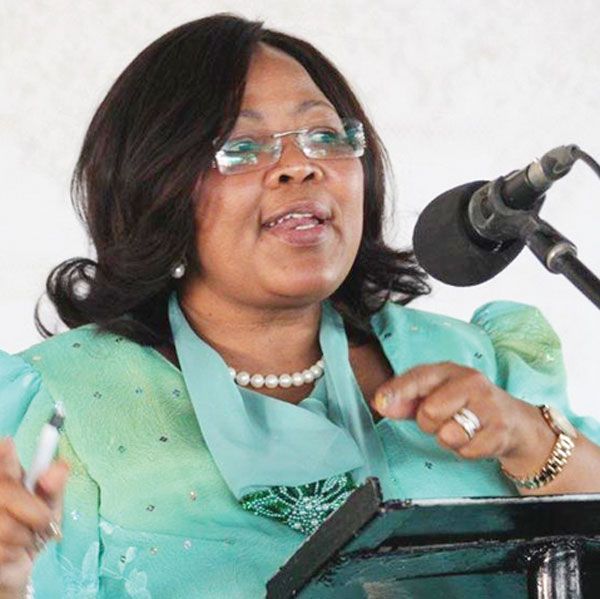
Communication Regulator donates 28 laptops to empower teachers and learners through access to ICT

The Communications Regulatory Authority of Namibia (CRAN) last week donated 28 laptops valued at around N$150,000 to eight identified schools through the Ministry of Education, Arts, and Culture.
The donation is set to bridge the digital divide through the expansion of universal access and improve performance and service delivery.
The selected schools to receive the laptops are Kaitsi!Gubeb Combined School in!Karas region; Otjiperongo Junior Primary School in Erongo region; W.J.D Cloete Junior Secondary School in Hardap Region; Kangongo Primary School in Kavango East; Kandjimi Murangi Secondary School in Kavango West; Welwitchia Junior School in the Kunene region; Vergenoeg Primary School, in Omaheke region; and Okomakwiya Primary School in Omusati region..
As part of its mandate and strategic goal of expanding coverage for ICT, the authority intends to improve performance and service delivery through various efforts, one of which is digitalization. Another is to promote infrastructure development as a catalyst for economic growth and social progression and a contributor to global competitiveness and investment attraction.
“In August 2021, CRAN issued radio frequency spectrum bands to Mobile Telecommunications Limited (MTC) for the provision of broadband services with a minimum downlink data speed of not less than 2 Mbps, subject to the rollout obligations imposed as licence conditions. CRAN, in consultation with the Ministry of Education, Arts, and Culture, identified 25 schools in remote/rural areas with either no services or only 2G mobile services to be provided with broadband services by MTC as part of the rollout obligations,” Emilia Nghikembua, CRAN’s Chief Executive said at the handover ceremony on Friday.
Katrina Sikeni, CRAN Head: Corporate Communication, said the rollout conditions were met by MTC, adding that there was uptake of the services due to a lack of devices.
“It is, therefore, that CRAN intervened and purchased 15 new laptops worth approximately N$150,000. We refurbished 13 used laptops in excellent condition to donate to the schools for use. CRAN will personally deliver the laptops to the identified schools and ensure that the rightful beneficiaries personally receive these laptops,” she added.
Speaking during her keynote address at the handover ceremony, the Minister of Education, Arts, and Culture, Hon. Anna Nghipondoka, noted that their ministry’s goal is to ensure that their commitment to progress is balanced towards ensuring that combined efforts and resources have the maximum possible impact in areas that are of significance.
“CRAN’s donation aims to empower teachers and learners through access to information and communication technology. Our Ministry is truly grateful for this donation, as these tools will assist in ensuring that our learners and teachers gain critical ICT skills and have access to valuable information through ICT services. This will go a long way in enabling a conducive environment for e-learning purposes,” she said.
The minister added that empowering young citizens to enter the workforce starts with providing them with the necessary education, knowledge, and skills.
“Namibia has made great progress in providing access to education to just over 95% of the student-age population,” she said.
“The Authority is very pleased that our strategic stakeholder, the Ministry of Education, Arts, and Culture, embraces our noble Corporate Social Investment initiatives and that we truly hope this donation will benefit the Namibian child to have access to Science, Technology, Engineering, and Mathematics through donations such as ours,” concluded Nghikembua.
The government through its 5th National Development Plan plans to develop and maintain the education infrastructure by introducing a comprehensive, integrated e-learning school programme for all learners that will assist learners in having access to equitable, inclusive quality education that qualifies them to pursue higher education, according to Sikeni.
 (L-R) Mr. Theophelus Nuuyoma, PA to the Minister of Education, Arts & Culture; Mr. Kevin Muchila, Director: Planning & Development, Ministry of Education, Arts & Culture; Mrs. Edda Bohn, Deputy Executive Director: Formal Education, Ministry of Education, Arts & Culture; Mr. Knox Otto Imbuwa, Deputy Executive Director: Finance and Administration, Ministry of Education, Arts & Culture; Mrs. Emilia Nghikembua, Chief Executive Officer, CRAN; and Mr. Elton Witbooi, Executive: Cybersecurity and ICT, CRAN.
(L-R) Mr. Theophelus Nuuyoma, PA to the Minister of Education, Arts & Culture; Mr. Kevin Muchila, Director: Planning & Development, Ministry of Education, Arts & Culture; Mrs. Edda Bohn, Deputy Executive Director: Formal Education, Ministry of Education, Arts & Culture; Mr. Knox Otto Imbuwa, Deputy Executive Director: Finance and Administration, Ministry of Education, Arts & Culture; Mrs. Emilia Nghikembua, Chief Executive Officer, CRAN; and Mr. Elton Witbooi, Executive: Cybersecurity and ICT, CRAN.











































